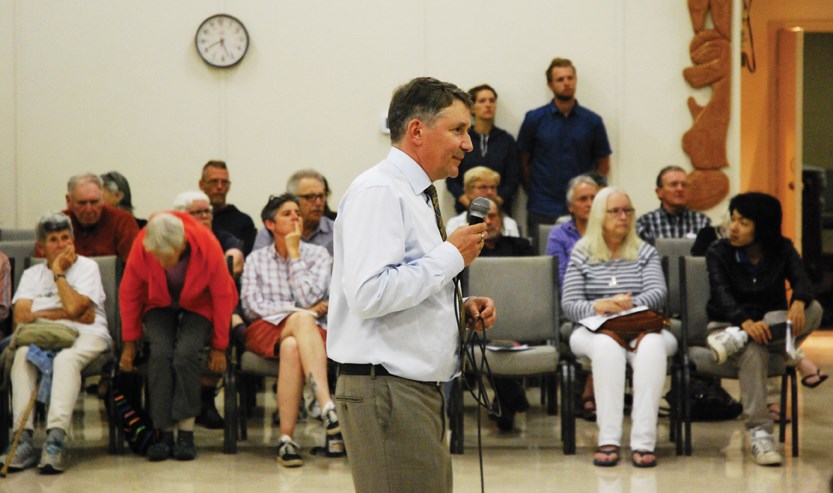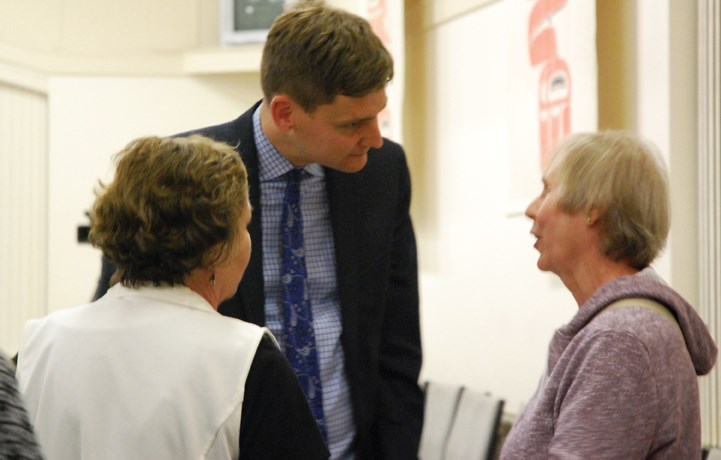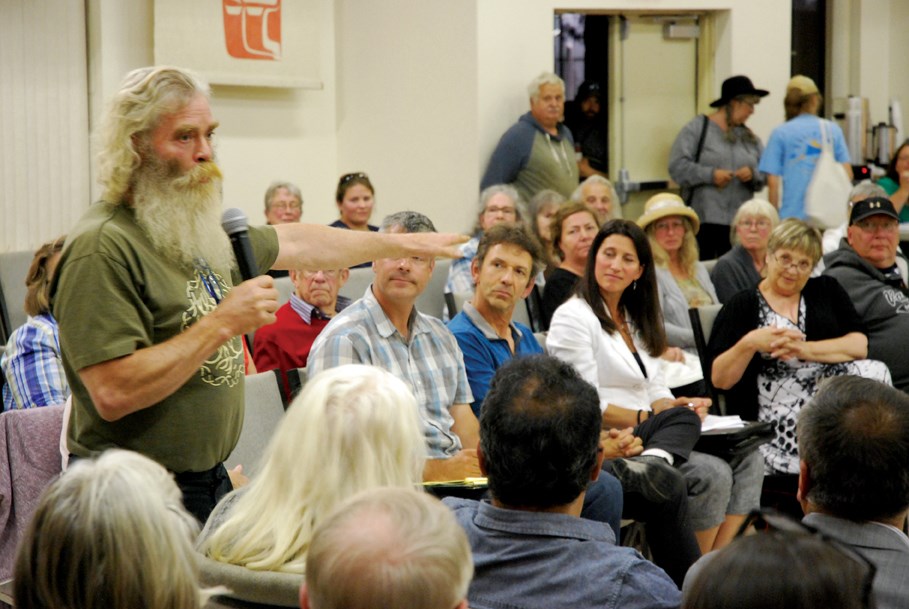Provincial NDP housing critic David Eby opened an Aug. 29 town hall on housing by telling the audience that, with an election nearing, this is an ideal time to start debating questions around housing and government roles at all levels.

Eby was one of the speakers invited by Powell River-Sunshine Coast MLA Nicholas Simons to offer their take on what’s happening, and ideas for restoring balance to a market characterized by Eby as “completely detached from wages.”
There was general agreement that recent spikes in real estate sales and prices on the Sunshine Coast have brought the area to a point where owning a house is difficult even for people with good, steady incomes. The speakers also agreed renters are being hit hard because rental stock is being sold and some landlords are getting into short-term rentals.
Where the panelists didn’t agree as much was on the underlying drivers.
Realtor Kenan MacKenzie said the role of foreign investment can’t be denied. “You’ve heard that only 10 per cent of foreign buyers make up the marketplace,” he said. “But that really is what’s driving the market up here. We get one off-Coast buyer, and they’ll move about five or six homes out of the marketplace.”
MacKenzie explained that he uses Langley as a good predictor of where the Sunshine Coast market will move, and he sees a million-dollar average price for single-family homes on the horizon.
Michael Goldberg of the Canadian Centre for Policy Alternatives, however, thinks there are other factors at work.
“I come at this as an economist, and see a slightly different perspective,” said Goldberg. “I think the bigger driver has been the exceptionally low interest rates … What a [particular] income could buy goes higher when you have low interest rates.”

For his part, Eby said it’s more likely off-Coast money, not offshore money, influencing the Sunshine Coast.
“Personally, I think a lot of your so-called offshore money is actually money from Vancouver. People are selling in Vancouver and buying on the Sunshine Coast.”
Both Eby and Goldberg rejected the idea of the 15 per cent foreign buyer tax being applied in Metro Vancouver. Eby said taxing buyers based on who they are instead of what they do is the wrong approach.
“The housing crisis here is major, and it is a crisis,” said Lee Ann Johnson, a former Gibsons councillor with professional experience in co-op and non-profit housing. “If we had a natural disaster that resulted in the loss of two-to-three hundred units of housing, local, provincial and federal governments would start acting. And that’s what’s happened here, in one sense, with the arrival of short-term rental through Airbnb.”
Johnson wants tighter regulation of short-term rentals, but one woman in the audience – who identified herself only as a landlord – said there’s a reason some property owners are going that route.
“The current Residential Tenancy Act does not protect the landlord,” she said. “With Airbnb you have security. The money is transferred before people come. There’s 24-hour protection and assistance. People are accountable for what they rent. There’s been months when I’ve had long-term rental [tenants] that I’d be better off to put chickens in my house, because at least I’m getting eggs.”
Eby said that as hard as things are becoming for prospective home buyers and renters, a significant number of people are simply “falling out of the bottom of the housing market” and becoming homeless.
Matt Thomson, who works with both the Sunshine Coast Housing Committee and the Homelessness Advisory Council, said BC Housing is working with the council on a plan to open the seasonal homeless shelter earlier and keep it open more hours during the day.
“The other conversation that we’ve been having with BC Housing is around a long-term supportive housing development,” he said. “For the first time in my six years on the Coast, they’re at the table and they’re saying we can make something happen.”
Solutions
Johnson, along with most of the other speakers, said there isn’t a single solution, but one of the easiest things the community can do is embrace densification. “That includes you standing up and saying, ‘I support an apartment house.’ Not standing up and saying, ‘I object to an apartment house.’”
Other ideas put forward included: ownership restrictions on foreign nationals similar to the rules in Australia, a higher property tax rate for people who do not pay income tax in B.C., as well as increasing welfare rates and the minimum wage along with establishing “living wage” policies.
MacKenzie also pointed to Habitat for Humanity as part of the solution.
Kim Darwin of the BC Green Party was in the audience and pointed out one type of affordable housing that’s often left out of the debate – mobile homes. Darwin criticized mortgage lending policies based on outdated views on mobile homes, and suggested better regulation of pad rental rates.
At several points in the meeting, both Eby and Simons predicted housing will be a major issue in the 2017 provincial election.
“The housing crisis is real – it’s being faced by way, way too many people in our province, and government has to act to address it,” Eby said.



